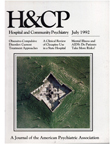A Survey of University-Prison Collaboration and Computerized Tracking Systems in Prisons
Abstract
It is conservatively estimated that 8 percent of inmates in U. S. prisons have significant psychiatric impairment. Correctional mental health systems are often unable to provide adequate treatment to such inmates because of staff recruitment problems. Collaboration between universities and departments of corrections can help solve recruitment problems, and needs assessment studies and computerized tracking systems can help obtain needed resources. A national survey collected data on collaborations between universities and corrections departments and on needs assessment and computerized tracking systems in prisons. Results indicated that such collaborations exist in more than half of state prison systems. Of 42 states responding, only ten states reported having systemwide computerized tracking systems, but others are in the process of developing such systems. Two-thirds of the correctional mental health systems did not have an ongoing needs assessment program.
Access content
To read the fulltext, please use one of the options below to sign in or purchase access.- Personal login
- Institutional Login
- Sign in via OpenAthens
- Register for access
-
Please login/register if you wish to pair your device and check access availability.
Not a subscriber?
PsychiatryOnline subscription options offer access to the DSM-5 library, books, journals, CME, and patient resources. This all-in-one virtual library provides psychiatrists and mental health professionals with key resources for diagnosis, treatment, research, and professional development.
Need more help? PsychiatryOnline Customer Service may be reached by emailing [email protected] or by calling 800-368-5777 (in the U.S.) or 703-907-7322 (outside the U.S.).



